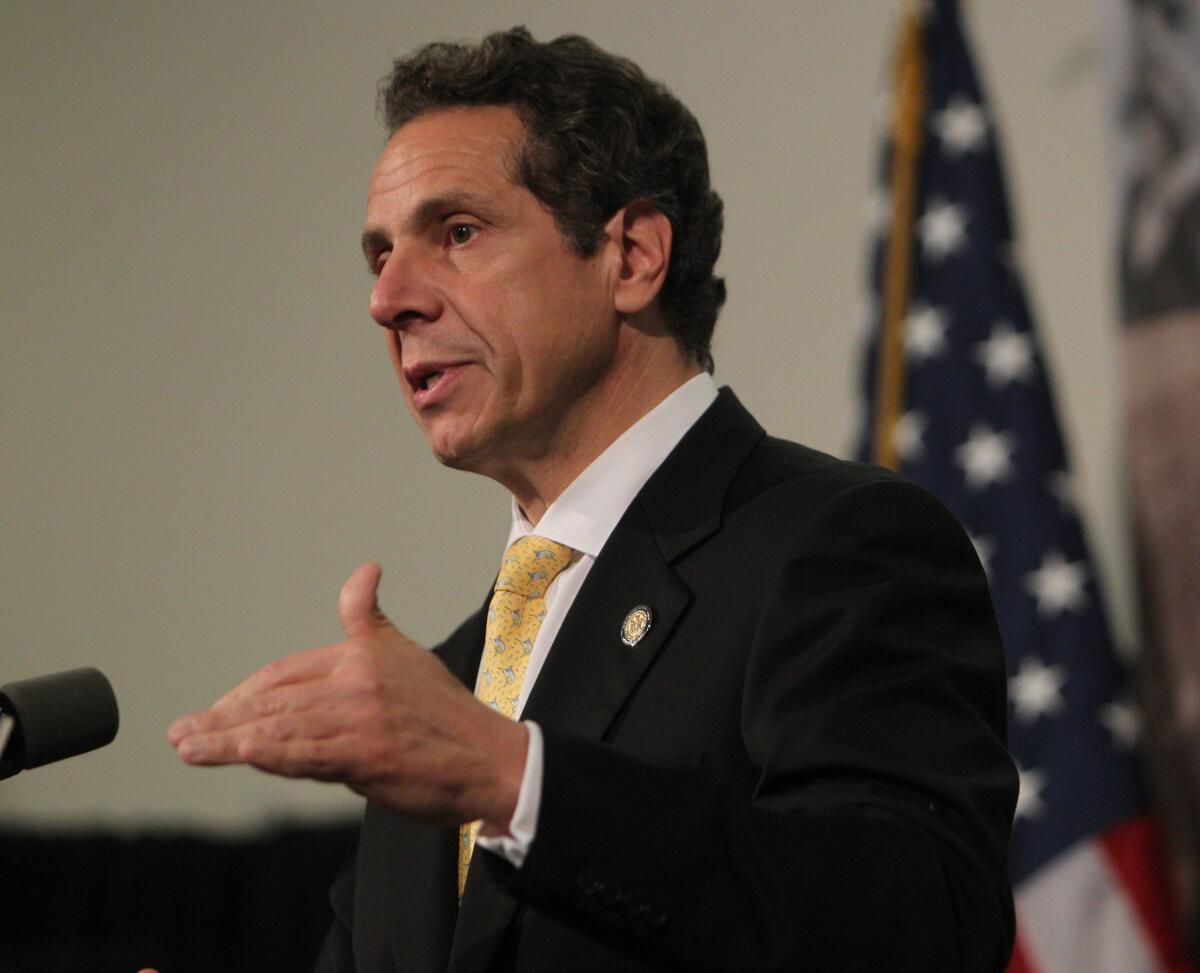New attack on Obamacare would make insurance costlier

House Republicans continued their crusade to dismantle Obamacare on Wednesday, but an announcement from New York Gov. Andrew Cuomo should have stopped them in their tracks.
The fact that it didn’t shows that Republican lawmakers are so determined to undermine the law, they don’t care what might happen to their constituents.
At issue are deceptively simple bills to delay two provisions of Obamacare (a.k.a. the 2010 Patient Protection and Affordable Care Act) for a year -- that is, until after the 2014 elections, when Republicans hope to regain control of the Senate. One, HR 2667, would postpone the requirement that employers with more than 50 full-time workers provide affordable insurance, a step the Treasury Department has already taken administratively. The other, HR 2668, would push back the mandate that virtually all American adults obtain coverage or pay a tax penalty.
The House passed the former, 264 to 161, and the latter, 251 to 174, with Democrats providing all but one of the “nay” votes in both cases. The two measures were then combined and sent to the Senate, where, like most of the House-passed bills to roll back Obamacare, they are sure to be stymied by the chamber’s Democratic majority.
As The Times’ editorial board has argued, the delay in the employer mandate isn’t great policy, but it won’t cause the law to unravel. The point in the mandate was to deter companies that offer insurance from dropping it, forcing their employees to obtain coverage on the market for individual policies -- possibly with the help of new federal subsidies for those earning less than four times the federal poverty level. Although some employers have cut staff sizes and workers’ hours to avoid coming under the mandate, there’s no evidence yet that companies would drop coverage if they didn’t face penalties for doing so. In fact, after Massachusetts enacted its own version of healthcare reform in 2006 (a.k.a. Romneycare), employer-based coverage increased.
Delaying the individual mandate, however, could prove extremely costly to those who buy individual insurance policies (that is, those not covered by group plans at work). That’s because insurers would be required by the Affordable Care Act to offer coverage to everyone without regard to their preexisting conditions or medical needs. Those who need care will sign up, but there will be no incentive for anyone else to do so until they too get sick. And insurers, recognizing that imbalance, will demand significantly higher premiums.
That’s what happened in New York after it barred insurers in the 1990s (when Cuomo’s father was governor) from denying coverage to anyone, or from charging sick and risky applicants more than healthy ones. It did not, however, require residents to purchase insurance. The state’s premiums are now among the highest in the nation.
On Wednesday, Cuomo announced the premiums that 17 insurers have proposed for the individual policies they plan to offer through the state’s new insurance exchange. For even the most extensive and costly plans, premiums will be, on average, 53% lower than they are for coverage today. Those are averages, and some applicants may see premiums go up. Most New Yorkers, however, should see real savings.
State officials said part of the reason for the reduction is the more vigorous competition engendered by the exchange, where insurers will offer standardized coverage that promotes comparison-shopping. But another factor is the individual mandate in the 2010 law, which should lead insurers to acquire more customers who are comparatively young and healthy.
That’s the working assumption behind the rates insurers are proposing. The law’s mechanism for enforcing the mandate may not prove to be effective, though; for healthy people who aren’t eligible for subsidies or lower-cost catastrophic-only coverage, it will probably be less expensive to ignore the mandate and pay the tax penalty than to sign up for coverage.
Only time will tell how that plays out. But one sure way to sabotage the system would be to suspend the individual mandate while leaving the new requirements on insurers in place, as HR 2668 would do. But then, that appears to be the sponsors’ intent, no matter what effect it might have on their constituents who need individual coverage.
ALSO:
Girl power! The royal baby and history’s what-ifs
Rolling Stone nails it with Dzhokhar Tsarnaev cover
Best financial advice for McDonald’s employees: Leave
Follow Jon Healey on Twitter @jcahealey
More to Read
A cure for the common opinion
Get thought-provoking perspectives with our weekly newsletter.
You may occasionally receive promotional content from the Los Angeles Times.







